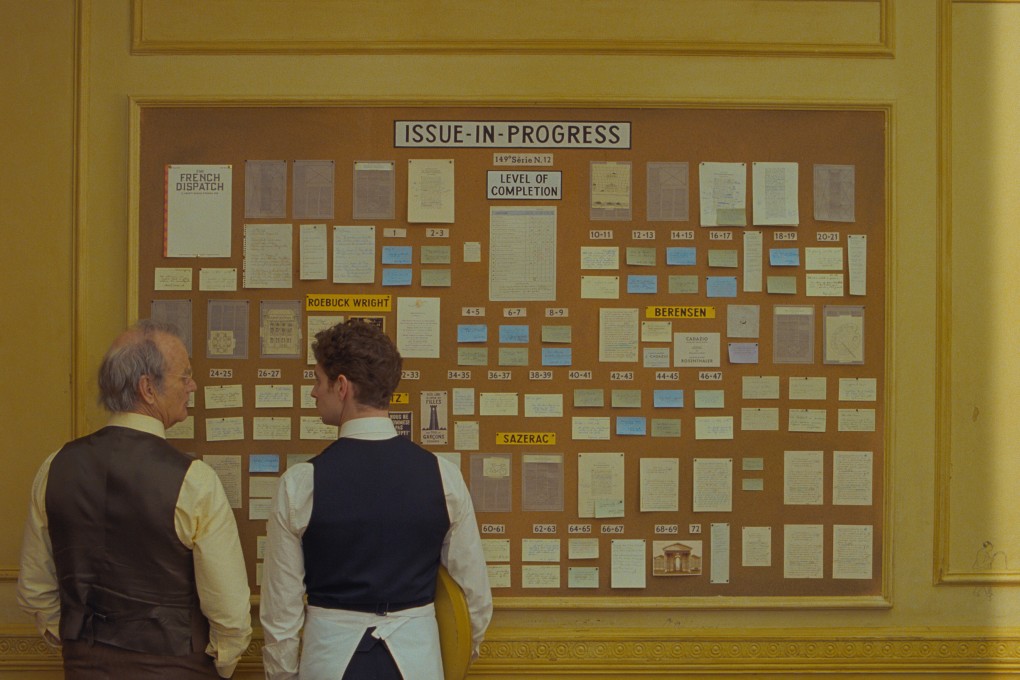Review | Cannes 2021: The French Dispatch movie review – Wes Anderson’s love letter to print journalism has everything his fans would have wanted
- A long list of stars including Bill Murray, Benicio del Toro and Tilda Swinton headline this quirky tip of the hat to the days when print journalism was king
- Even by Anderson’s standards this has to be the most ambitious film he’s ever produced, with a breathtaking level of detail used in recreating 1960s-ish France

4/5 stars
Set to be last year’s opening film at the Cannes Film Festival, Wes Anderson’s latest feature finally gets its unveiling in competition at the 2021 edition. Was it worth the wait?
Well, for fans of the American director’s idiosyncratic stylings, the answer is surely yes. The French Dispatch is a quirky tip of the hat to the days when print journalism was king. The New Yorker and its legions of writers are highly influential here, as is Anderson’s eclectic love of literature, art and music.
Located in the fictional French town of Ennui-sur-Blasé are the offices of “The French Dispatch”, a Sunday supplement belonging to the Liberty, Kansas Evening Sun newspaper. Run by the unsentimental Arthur Howitzer Jr (Bill Murray) – he has “No crying” written above his door – this magazine is dedicated to culture, politics and society issues.
Watching this anthology-style film is like leafing through an edition of the magazine, as Anderson takes us from Page 1 right through to “Declines & Deaths”.
The bulk of the film is made up of three “articles”. The first sees Tilda Swinton’s flame-haired art critic narrate the story of Moses Rosenthaler (Benicio del Toro), an imprisoned but brilliant artist being courted by Adrien Brody’s cynical collector.